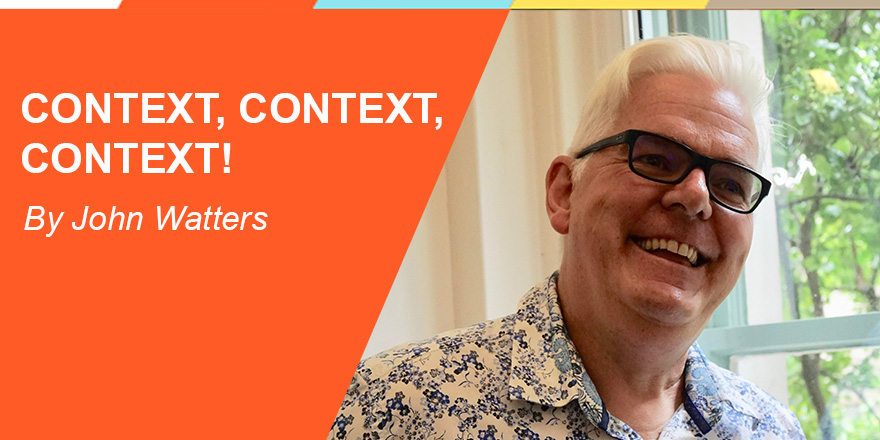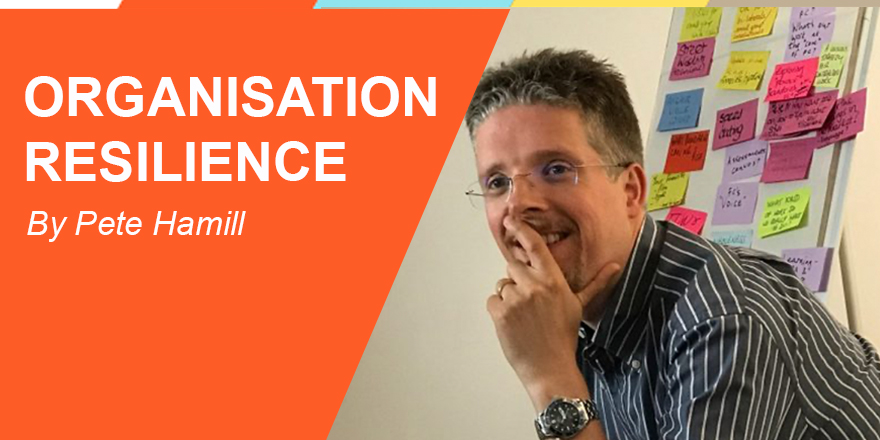

Resilience is a current trend in organisations, often connected to the themes of wellbeing and mental health. People are shipped through half-day modules on how they can be more resilient, and stressed and overworked leaders are told they must be role models for resilience – “as if we’re not busy enough,” they often seem to sigh in response.
This route to address resilience does not seem to us to be helpful or effective. It does not seem to address either the organisation’s responsibility in this arena or the cost of not addressing this effectively.
People under stress see patterns which aren’t there. For example, if you give someone a dose of the stress hormone cortisol and give them random patterns, they will see images or messages in the patterns which don’t exist. Biologically stress hormones were designed to assist us during dangerous situations, and this mechanism which is designed to make us cautious of bear attacks in the wilderness, now results in paranoia in managers and leaders. It’s worth noting that the paranoid seeing of dangerous patterns in organisational changes and announcements is utterly impervious to logic when people are stressed, as many leaders and change teams have discovered.
More dangerous is the fact that when we are loaded up with cortisol and other stress hormones, we quickly stop noticing[1]. Once we have been under their influence for an extended period it becomes normal and we may not even judge ourselves to be stressed, whilst being completely paranoid. We believe ourselves to be the reasonable, objective and rational one dealing with an organisation full of people who are at best incompetent, but who often have malintent.
This effects decision making considerably throughout the organisation and creates a suspicious organisational politics in the midst of which it is difficult to create change within the organisation. People will often not be open to change and may not believe the intentions of those initiating the change. However, it doesn’t stop there…
The stress and cortisol impact what little sleep senior execs allow themselves, and the research on sleep deprivation and decision making is truly scary for anyone running an organisation[2]. The research is clear that people who are sleep deprived perform significantly worse on simple tasks, miss substantial amounts of information and have ‘micro-sleeps’ of 1-3 seconds where they lose consciousness for a moment, but without noticing. Like with cortisol, people who are sleep deprived fail to notice how much they are affected simply because their brains will work hard to fill in any perceptual holes caused by lack of sleep.
The end result is a group of paranoid, sleep deprived people, making bad decisions who broadly think that they are ok… until they drop.
One of the issues with resilience half-day workshops is that they put the responsibility on the individual. This actually tends to stigmatise those with mental health challenges who are (sometimes just for a particular period of their lives) less resilient. The irony is that this can be due to a long period of time of trying to be too resilient to intolerable organisational and/or life situations. This doesn’t address the organisation’s responsibility.
Telling someone who’s working in a warehouse wearing adult diapers because they are measured on time to such a high degree that they don’t have time to go to the toilet[1], that they need to be more resilient is wrong. Being more resilient to an intolerable situation is not healthy for anyone. So, any real plan to address resilience needs to address both the individuals and the conditions in which they are working. Most senior leaders don’t believe that such intolerable situations exist in their organisations, but our experience is that they do more often than these leaders like to believe. This means that any real initiative to address resilience is as much a project of organisational development as individual development.
In addition, it is important to recognise that this focus on resilience doesn’t deal with the differences between genders, races, sexualities, differing levels of ability and other
protected characteristics. For example, statistics suggest that more than half of all women engage in active safety planning – e.g. avoiding public transport at night or planning what to do when walking at night when a man is walking behind them. What impact does this need for alertness and planning have on resilience?
Experiencing racism (structural, systemic or personal) has been shown to have impacts on people’s physical health outcomes – what impact does this have on their resilience? There is evidence of higher levels of burn-out in such groups, and this is inevitably impacting on many organisation’s diversity outcomes as well as having cost to the individuals concerned.
Research shows that our resilience varies over time depending on many aspects of our lives, and that it is somewhat changeable through our personal practices. There are two aspects which are helpful to pay attention to here:
There are a range of things which are shown to develop and maintain resilience over time:
These are fairly simple things, but in the busyness of life and demanding jobs, many of these can be left by the wayside. These practices are not instant gratification practices, however over time they build our physical, mental and emotional resilience. For a fuller exploration of personal responsive and resourcing practices check out our blog on Exploring your own Resilience
Any organisational strategy to develop resilience needs to:
Integrate this approach into leadership development.
[1] For more information on the impact of cortisol see ‘The Hour Between Dog and Wolf’ by John Coates
[2] For more information on the impact of sleep see ‘Why We Sleep’ by Matthew Walker
[3] As reportedly is the case with one online retailer’s distribution centres
Future Considerations Ltd
29 Adonis Street, Acropolis
Subdivision, Libis,
Quezon City,
Philippines 1110
Jon’s early career designing applications led to him becoming IT director for a market-leading multinational. His systemic perspective, allied with a background in psychology and subsequent leadership experience inside major organisations was followed by intensive learning in personal development, values systems and multiple intelligences. Brought together, these create a transformational perspective for understanding and developing organisations as living systems. Jon is a master trainer in Spiral Dynamics, a founder director of the UK chapter of Conscious Capitalism and a certified Spiritual Intelligence coach. He is the author of several books and articles and is developer of Relational Being, a visionary whole systems approach to evidence-based spirituality, complexity science, human emergence, societal change and conscious business. This breadth of experience and deep understanding informs his work as a consultant, coach, trainer and facilitator.